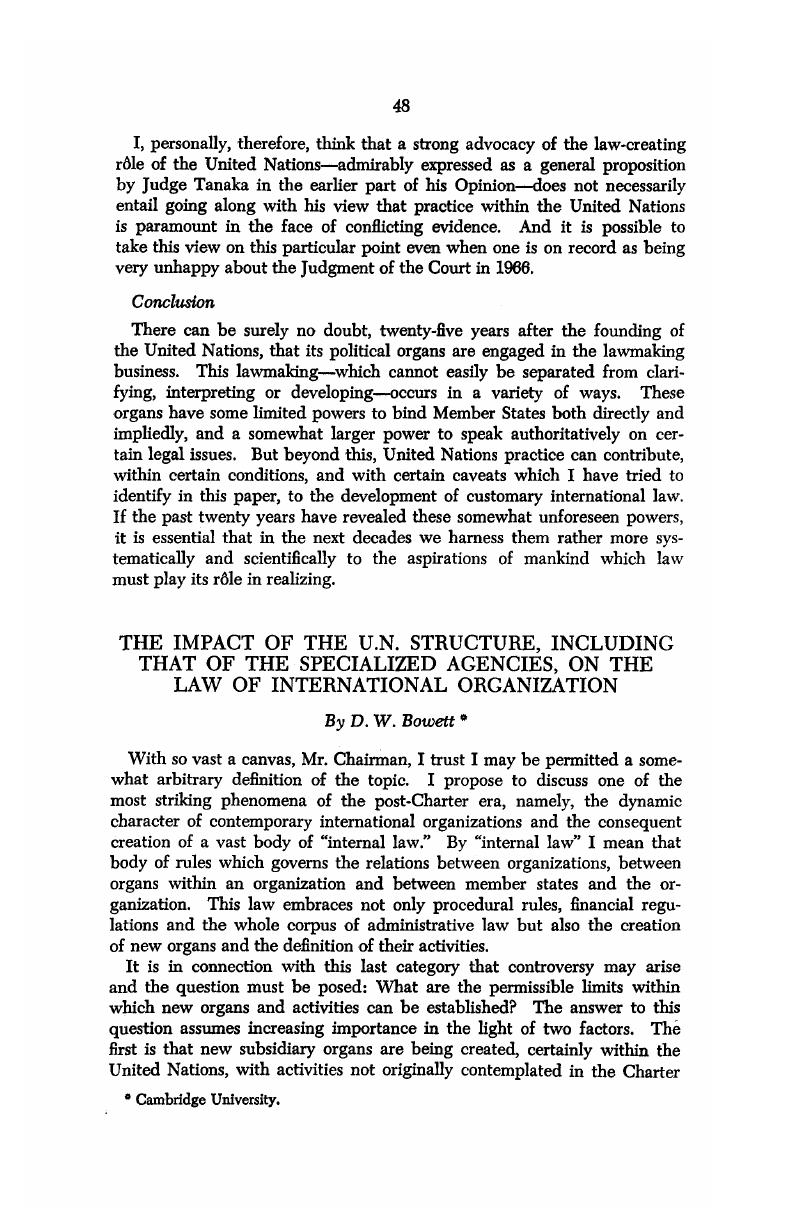No CrossRef data available.
Published online by Cambridge University Press: 28 March 2017

1 See Skubiszewski, , “Enactment of Law by International Organisations,” 41 Brit. Yr. Bk. Int. Law 198 at 229 (1965-66)Google Scholar.
2 See Gold, , “Interpretation by the I.M.F. of Its Articles of Agreement,” 16 Int. and Comp. Law Q. 289 at 292 (1967)10.1093/iclqaj/16.2.289CrossRefGoogle Scholar.
3 Seyersted, , Objective International Personality of Intergovernmental Organisations (Copenhagen, 1963)Google Scholar.
4 [1949] I.C.J. Rep. 174.
5 See Voting Procedure Case, [1955] I.C.J. Rep. 77; and Hearings of Petitioners Case, [1956] ibid. 29.
6 [1962] ibid. 151 at 167-168.
7 This seems implicit in the two opinions of the P.C.I.J. on the Competence of the I.L.O. (Ser. B, Nos. 2, 3 and 12) and the current practice regarding abstention as an implied concurrence.
8 Only in the IMCO (Constitution of the Maritime Safety Committee) Case, [1960] I.C.J. Rep. 150, has the I.C.J. held a practice unconstitutional.
9 Or is in the category of “permissive” as opposed to “mandatory” functions, if Judge Sir Gerald Fitzmaurice is right in making this distinction in his Separate Opinion in the Expenses Case, [1962] I.C.J. Rep. 213. The author finds great difficulty in locating the basis for this distinction anywhere in the Charter, at least as regards the obligation to finance an activity.